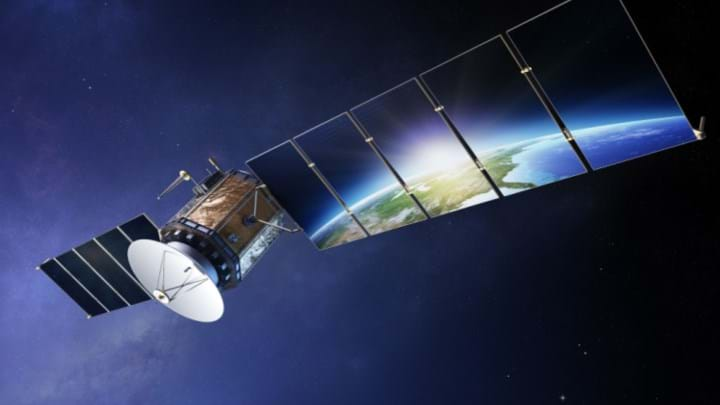Water monitoring and life science projects receive UK Space Agency grants in latest funding round

INTERNATIONAL projects in water quality monitoring and life sciences research were among the proposals to secure grants from the UK Space Agency (UKSA) in the government body’s latest round of funding.
In the second round of the UKSA’s International Bilateral Fund, £6.5m (US$8.7m) was awarded to 23 projects running until the end of March 2026 – £1m more than originally allocated, due to high demand.
One of the largest individual grants was awarded to a UK- and Australia-based group developing a satellite system to monitor water quality. Led by Airbus-owned UK satellite builder Surrey Satellite Technology Limited (SSTL), the £479,000 grant will help the group develop an Australian satellite to provide detailed biochemical water analysis. The satellite will use Australian space agency CSIRO’s imaging technology.
The organisations involved, which include UK-based Earth observation companies Pixalytics and Assimila, the University of Stirling, UK government-owned research institute RAL Space and management consultancy Deloitte, say the project will complement the European Space Agency’s existing NAIAD mission which uses an SSTL satellite to monitor water quality in lakes, rivers, estuaries and coasts.
SSTL says the funding will allow them to create a “dual-satellite” system that will enhance the frequency and precision of water monitoring in both countries. Clive Oates, the regional head of SSTL in Australia, said the project “exemplifies how international collaboration can address shared global challenges, fostering innovation and economic growth”.
Grants were also awarded to several life sciences projects, including £366,000 for a proposal led by UK-based Frontier Space Technologies to design a cargo handling system for next-generation space-based R&D. Alongside Germany-based The Exploration Company and an unnamed US-based pharmaceutical company, the project aims to enhance drug development.
Frontier Space Technologies primarily designs modular autonomous labs to be sent up to space. Life sciences R&D is appealing in space because the low gravity improves protein crystallisation and enables growth of more realistic 3D cell cultures, rather than the conventional 2D ones grown in labs on Earth. Pharmaceutical major Merck, for example, used space labs to develop a subcutaneous version of their intravenous cancer immunotherapy Keytruda. Meanwhile, Eli Lilly found that insulin crystals grown in low gravity are larger and more structurally ordered than those produced on Earth.
UK-based startup LinkGevity, meanwhile, was awarded £120,000 for a project with Lithuania-based Delta Biosciences to develop world-first anti-ageing treatment for astronauts. LinkGevity is currently developing drugs to prevent necrosis – the sudden death of cells – which can cause tissue degradation and ageing and is often accelerated in space. The company hopes the project can help enable in-orbit tissue manufacturing.
A grant of £99,000 was awarded to a project led by UK-based Take Root Bio which alongside the University of Guelph in Canada aims to explore how space farming techniques could inform more sustainable food systems on Earth.
UKSA CEO Paul Bate said: “These new projects span the full spectrum of UK space expertise, from telecommunications, propulsion and environmental monitoring to cutting-edge technologies that could change how we develop treatments for deadly diseases using microgravity.
“By combining homegrown talent with global expertise, we want to strengthen our capabilities, support growth and ensure the UK remains at the forefront of space innovation.”
Continental shifts
The UKSA established the International Bilateral Fund in 2023 with a view to increase space collaboration with organisations outside of the European Space Agency, through which most UKSA funding is currently channelled. The UKSA views relationships with Australia, Canada, France, Germany, Japan and the US as strategic priorities.
The International Space Station (ISS), operated by US, Canadian, European, Japanese and Russian space agencies since 1998, currently hosts much of the space-based lab capacity used for life sciences R&D. The ISS is set to be decommissioned after 2030, following NASA’s announcement last year to retire it from orbit and shift research and development to commercial facilities.
Recent Editions
Catch up on the latest news, views and jobs from The Chemical Engineer. Below are the four latest issues. View a wider selection of the archive from within the Magazine section of this site.




